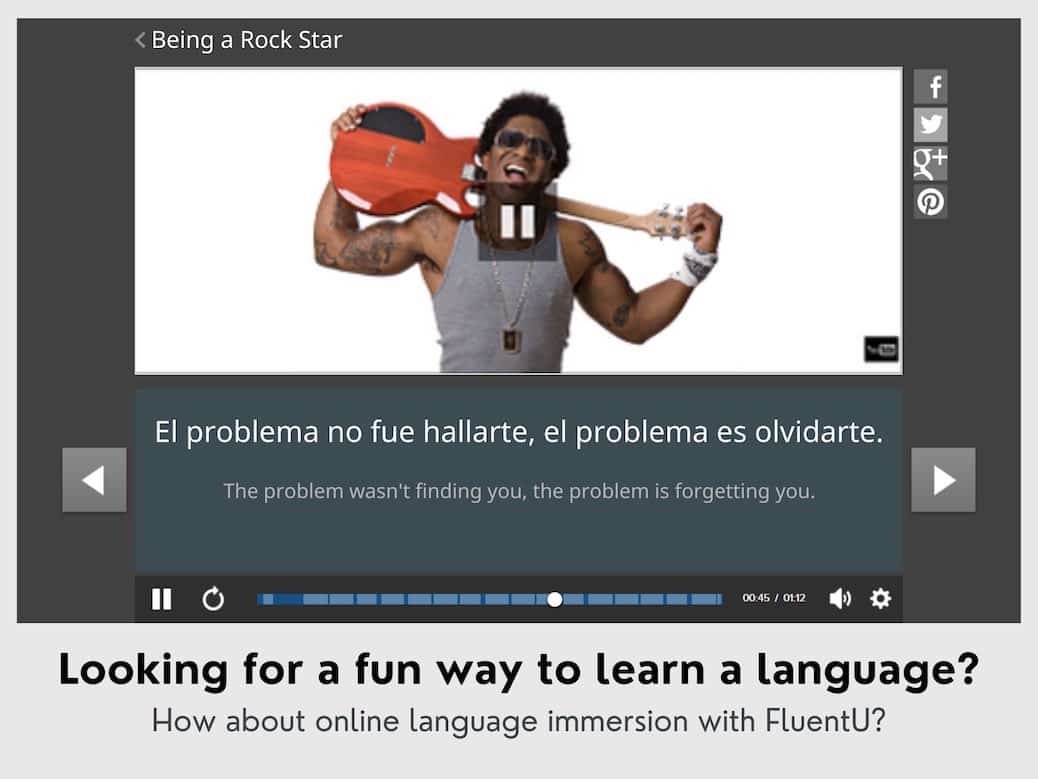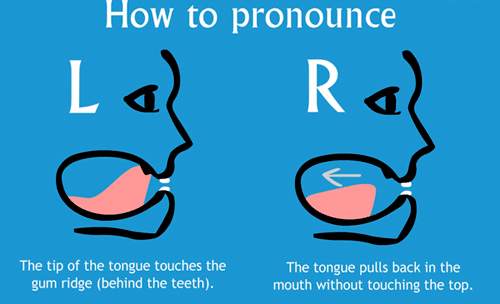【43日目】誰にでも聞き取れないことはある
こんにちは!
だんだん天気も回復してきた様に
思いますね(^^)
たまには外を散歩して
気分をリフレッシュするのが
私にとっては至福のひと時です。
みなさんの至福のひと時は
何ですか?
=================
目次
=================
➤誰にでも聞き取れないことはある
➤インプットの時間
➤本日のワーク
=================
①誰にでも聞き取れないことはある
英語を聞く場面に面したとき、
ネイティブでも聞き取れないことは
あります。
それは大抵、
相手が話すスピードが速すぎたり
独特なイントネーションを
持っているかですね。
決して自分が聞けなかったから…
と思わなくても大丈夫です。
その際はしっかりと
聞き返しのフレーズを
言えれる様になるだけです!
1. I beg your pardon?
訳:もう一度おっしゃってもらっていいですか?
2. I’m sorry. I couldn’t catch that.
訳:すみません、聞き取れませんでした。
3. Could you repeat that for me?
訳:私のためにもう一度繰り返してください。
4. Do you mind repeating that?
訳:もう一度言ってください。
5. Sorry, I wasn’t paying attention.
訳:ごめんなさい、注意が逸れていました。
また再度、
何度もインプット作業を
行って下さい!!
②インプットの時間
では、今回もテーマに沿った
英語記事を読んで頂きます。
しっかり理解しながら
読み進めてくださいね!
もちろん今回も私が
間に入って理解力を確認しますね!!
WAYS TO EXPRESS YOU DIDN’T HEAR OR UNDERSTAND
Imagine you’re having a conversation in a foreign language and simply can’t understand what somebody just said to you. What do you do then? At least I often find myself blurting out something slightly rude like “What?” or “Huh?” instead of a nicer, more sensible reaction.
In very informal speech, such as with close friends, it may be alright to use expressions like “Huh?” or “What?” in English when you couldn’t hear or understand somebody, but in most cases you should communicate in a bit more polite way.
Below you’ll find a few examples of English expressions that you can use when you don’t understand or couldn’t hear something.
I recommend visualising yourself in these situations and saying these phrases out loud often, so they will come to you automatically when the phone reception is bad or you miss a question in a lively conversation.
❶作者が外国語を話す際に聞き取れなかったら
何と言っていますか?
❷作者はフレーズをどうすることを
おすすめしていますか?
With these phrases, you can simply ask that the other person repeats what they said:
Sorry, I didn’t understand. Could you say that again, please?
Sorry, I didn’t catch that. Could you repeat a little louder, please?
If the sound on the phone is unclear or the person you’re talking to is speaking too quietly, you can say:
I can’t hear you very well. Could you speak up, please?
If you don’t understand a certain word, you can ask the other person to explain:
I don’t know that word, could you please tell me what it means?
If you have already asked them to repeat once, but still can’t understand, you can say you’re sorry in the following ways:
Sorry, English is not my first language. Would you mind repeating that once more?
Sorry, my English is not that great. Would you mind speaking more slowly?
③本日のワーク

以下の翻訳をしてください。
Ever stood in a Japanese supermarket aisle for what feels like forever, staring at a strange-looking vegetable or illegible packet of mystery goo? Today's mystery is okara, let's have a look at this surprisingly versatile Japanese ingredient.
So, what is okara?
Okara or soy pulp is much more than it sounds. The leftover “stuff” from producing soy products, it’s either sold for very cheap (anywhere from just ¥60 – ¥150 a bag), given away for free (even by supermarkets), or simply thrown out. But believe it or not, okara is what brought me to Japan.
👇ここから👇
This miracle food that’s low in fat and high in calcium, protein and dietary fiber is sold at almost all Japanese supermarkets in the tofu aisle. It is usually white or yellowish in color though you can also find greyish okara, a by-product of black soybean tofu.
Unlike its siblings, soymilk, and tofu, this Japanese ingredient isn’t consumed on its own. In Japanese cuisine, it is commonly used to prepare unohana 卯の花, a popular and traditional savory side dish made by combining okara, vegetables such as carrots, burdock, negi (leek or green onion), shiitake mushrooms, shoyu (soy sauce), mirin (Japanese rice wine) and sometimes konnyaku (elephant yam). Like okara, ready-made unohana is also available at most Japanese stores; generally found in the takeout food isles.
👆ここまで👆
What can you make with okara?
In addition to savory dishes like unohana, you can use okara as a versatile nutritious, and diet-friendly addition to baked goods. In gluten-free recipes, okara can entirely replace flour, giving baked goods a wonderfully moist feel. And in vegan baking, it is a convenient egg substitute. Even in a recipe containing gluten, egg, and/or dairy, simply adding 1/4-1/2 cup of okara to your cake or muffin batter is an easy way to up your good-health brownie points.
My personal favorite way to use okara is to make okara crumble. It is unbelievably easy, so wonderful and so good for you!
I have chosen to flavor this okara recipe with blueberry seeing as blueberries are one of Japan’s most nutritious summer fruits. This is because the anthocyanin pigments found in these tiny blues are actually quite powerful, helping boost skin elasticity and protecting against UV damage too.
In addition, blueberries boast a high count of both Vitamins C and E which you already know are good for you. In saying that, if you’re not a blues fan, you can always substitute another berry or fruit. Fresh summer raspberries or generally dried fruit are a good choice.
Happy, healthy scoffing!
それではまた(^^)
【42日目】リスニングの際に持つべきマインド
最近涼しくなってきましたよね(^^)
日中は相変わらずですが。
夏の終わりは少し寂しい気分に
なりますが、食欲の秋がやってきます!
今こそおいしいもの一杯食べて、
もちろん運動もして、
小さな幸せを感じて行きましょう~
そして遂に
「ネイティブへの魔法」最終章
Part6
流暢な英語を聞き取るコツ
を本日から始めて行きます!!
=================
目次
=================
➤読む、聞く、話す
➤インプットの時間
➤本日のワーク
=================
①読む、聞く、話す

さて、皆さんはここまでで
「読む」をとことん取り組んで
頂きました。
同様に「聞く」も取り組んで
頂いている事と思います。
私たちが目指すネイティブアメリカン、
ブリティッシュ?オーストラリアン?カナディアン?
どれでもいいですが、
そもそもコミュニケーションを
取っていく上でまず取り掛かるのは
リスニングですよね。
話をしていく際には
話を聞く側が最も重要です。
聞く際に理解が乏しければ
会話やコミュニケーションは
成り立ちません。
その為にも、
なれない英語のリスニングが
できるための工夫と行動が必要に
なります。
さて、リスニングを挙げる為には
結論慣れるしかないです。
どうすればいいのか。
ただ単に毎日何かしら
英語を考えたり無意識に
聞くことです。
私は今でも英語は勉強中です。
勉強することで、知らない単語や
言い回しが分かることで、
コミュニケーションの密が濃く
なれるからです!
ソーシャルディスタンスは
密にならないように、
コミュニケーションは
密に濃く行きましょう (笑)
いつでもいざ英語圏の方と関わる機会が
訪れても良いように、
普段から英語に耳を慣らしておきましょう。
洋楽をlyrics付きで聞いたり、
英語のニュースを字幕付きで見たり、
洋画を見たりするのもいいです。
とりあえず、それを苦に思わずに
やって欲しいです。
このプログラムに参加頂いている
みなさんは海外に興味がある方ばかりなので、
もっとその興味に夢中になってください(^^)
海外が好きなのであれば
それを現地の国の言語=英語で
関わっていくことです。
最初は何が何だか分からない
かもしれませんが、
みなさん、翻訳のワークを
出していただく際に、
ご自身の好きなトピックの記事に関しては
とても上手に翻訳できていますよ?
恐らくそこには、
ただ何となく、ニュアンスに
任せている部分があり方だと
思うのです。
それは悪い事ではありません。
間違っていないので。
そもそもそのニュアンスや勘は、
間違いなくこれまでのあなたの
過ごしてきた経験内から出てきたものなのです。
なので、それを磨いていくためにも
どんどん趣味に、気になることに、
夢中になってください。
私はというと、アイドルが
とことん好きなんですよね。
ジャニーズも好きですし、
K-POPも好きですし、
海外アーティストも好きです。
そんな中、最近本当に
アイドルのグローバル化が
目立ってきましたよね?
日本のジャニーズだって
そうです。
私の推しが英語ペラペラだと
目をハートにして聞き入って
しまいます。キモいですよね(笑)
そして私も同じように
その言葉を発そうとします。
それで気づいたらそれが脳に焼き付いて
自分のものになっています。
これも一つの手だと思って下さい(^^)
最近若者が韓国語を
話せる様になってきてるのも、
アイドルの影響が非常に大きいです。
その言語ができることで、
推しが出てる韓国バラエティー
がよりもっと楽しめる様になるし、
カラオケで歌も歌えるように
なるし、現地のアイドルファンと
SNSでつながることだってできます。
言語をツールにできることで
何だってできちゃいますし、
人生がよりもっと薔薇の様になれちゃいます!!
アイドルをここで例に挙げましたが、
他にも、尊敬とする海外のアーティスト、
スポーツ選手、バックパッカー、
メイクアップアーティストなど
気になる分野の海外の
スペシャリストに焦点を
当てるでもいいんです。
単に、かっこよくないですか?
例えばメイクの動画を英語でするだけでも。
フレーズを真似て自分でも言いたくなりませんか?
スポーツ選手の一日のスケジュールの
動画を見るだけでも、
「あぁ…カッコいい」って思っちゃいますもん。
きっとそのように思う方は
沢山いらっしゃると思います。
なってやろうじゃありませんか。
なれるもんなんですから、
なるかどうかは本当に自分次第です。
②インプットの時間
Then , let's read the English text about
how to improve the listning skills .
As understand about this text as you can ,
you should get many things like reading skills ,
the knowledge how to get such skills and
the brain can thing not the your own language !!
let's try as usual !!
<Strategy to improve English listning skills >
As a new English speaker, your language skills are progressing well -- grammar is now familiar, your reading comprehension is no problem, and you are communicating quite fluently -- but listening is still posing a problem.
First of all, remember that you are not alone. Listening comprehension is probably the most difficult task for almost all learners of English as a foreign language. The most important thing is to listen, and that means as often as possible. The next step is to find listening resources. This is where the Internet really comes in handy (idiom = to be useful) as a tool for English students. A few suggestions for interesting listening selections are CBC Podcasts, All Things Considered (on NPR), and the BBC.
ここで、airilが皆さんが
きちんとこの一つのモジュールを
正しく理解できているのか
確認していきたいと思います。
私が箇条書きで尋ねますので、
あなたのインプットできたことを
そのまま当てはめてくださいね。
❶沢山の英語学習者がいますが、
作者が言う問題視しなくてもいいと
謳っているのは何ですか?
Listening Strategies
Once you have begun to listen on a regular basis, you might still be frustrated by your limited understanding. Here are a few courses of action you can take:
- ・Accept the fact that you are not going to understand everything.
- ・Stay relaxed when you do not understand -- even if you continue to have trouble understanding for a while.
- ・Do not translate into your native language.
- ・Listen for the gist (or general idea) of the conversation. Don't concentrate on detail until you have understood the main idea(s).
First, translating creates a barrier between the listener and the speaker. Second, most people repeat themselves constantly. By remaining calm, you can usually understand what the speaker had said.
Translating Creates a Barrier Between Yourself and the Person Who Is Speaking
While you are listening to another person speaking a foreign language (English in this case), the temptation is to immediately translate into your native language. This temptation becomes much stronger when you hear a word you don't understand. This is only natural as we want to understand everything that is said. However, when you translate into your native language, you are taking the focus of your attention away from the speaker and concentrating on the translation process taking place in your brain. This would be fine if you could put the speaker on hold. In real life, however, the person continues talking while you translate. This situation obviously leads to less -- not more -- understanding. Translation leads to a mental block in your brain, which sometimes doesn't allow you to understand anything at all.
❶あなたが英語を聞き取れない一番の要因は
なんだと作者は謳っていますか?
❷翻訳をすることはあなたの脳に
何をもたらすと作者は謳っていますか?
Most People Repeat Themselves
Think for a moment about your friends, family, and colleagues. When they speak in your native tongue, do they repeat themselves? If they are like most people, they probably do. That means that whenever you listen to someone speaking, it is very likely that they will repeat the information, giving you a second, third or even fourth chance to understand what has been said.
By remaining calm, allowing yourself to not understand, and not translating while listening, your brain is free to concentrate on the most important thing: understanding English in English.
Probably the greatest advantage of using the Internet to improve your listening skills is that you can choose what you would like to listen to and how many and times you would like to listen to it. By listening to something you enjoy, you are also likely to know a lot more of the vocabulary required.
Use Key Words
Use keywords or key phrases to help you understand the general ideas. If you understand "New York", "business trip", "last year" you can assume that the person is speaking about a business trip to New York last year. This may seem obvious to you, but remember that understanding the main idea will help you to understand the detail as the person continues to speak.
❶リスニングの際に、主要な単語を
聞き取れるだけで何が起こると
作者は謳っていますか?
Listen for Context
Let's imagine that your English speaking friend says, "I bought this great tuner at JR's. It was really cheap and now I can finally listen to National Public Radio broadcasts." You don't understand what a tuner is, and if you focus on the word tuner you might become frustrated.
If you think in context, you probably will begin to understand. For example; bought is the past of buy, listen is no problem and radio is obvious. Now you understand: He bought something -- the tuner -- to listen to the radio. A tuner must be a kind of radio. This is a simple example but it demonstrates what you need to focus on: Not the word that you don't understand, but the words you do understand.
Listening often is the most important way to improve your listening skills. Enjoy the listening possibilities offered by the Internet and remember to relax.
❶作者は何をすることがリスニング能力を上げる方法だと
言っていますか?
お疲れさまでした!!
どうですか?
この英語のテキストを理解することは
できましたでしょうか??
是非感想をお聞かせくださいね!!
③本日のワーク

以下の文を翻訳してください
"The truth is that it's long and I think that it can only get better. The pain is getting to me and when I push too hard with my legs it's difficult. The terrain makes me realise straight away that it's not quite right."
先日友人とオシャレなバーに
行った際に、自転車競技が
巨大なスクリーンに映っていたのですが、
これのことでした!!
私は全くこのスポーツに親しみは
無かったのですが、
ただただ選手たちが必死に
自転車を漕いでいた姿に
目を奪われてしまいました…
ということで、
それではまた!!
【41日目】”ヘこへこ癖”正直イタイです
先日は友人とオシャレなバーで
沢山語りました(^^)
音楽はガンガンの洋楽で、
巨大スクリーンには海外の
番組が放送されていて、
私にとっては
たまらない空間でした~
そんな空間で友人とお酒とともに
語るのは非常に刺激的なことですよね!!
最高のひと時でした。
=================
目次
=================
➤”ヘこへこ癖”正直イタイです
➤インプットの時間
➤本日のワーク
=================
①”ヘこへこ癖”正直イタイです
”ヘこへこ癖”とは。
よく日本人はコミュニケーションの際に
する行為ですね。
私もお客様と対応をする際には
無意識にしがちです。
しかし、ここでairilから
お伝えしたいことがあります。
ます、ヘこへこつまり
小刻みの会釈やお辞儀は
英語圏の文化ではありません。
少し嫌な言い方かもしれませんが、
舐められがちな行為の一つでもあります…
私がこれまで沢山の経験を
してきたからこそお伝えできる事です。
日本人からしたら特に
悪い意味を持たせている訳でも
無いですが、
英語圏の人から見たら、
なんだか頼りない人に
見えてしまうのですよね。
「この人に任せられるのか」
「この人は理解できているのか」
とマイナスなイメージを
抱かれるのですよね。
特に接客の面では、
特に謝罪の場面でもなければ
ヘこへこする必要は
ありません。
英語圏の人は、
話す際も堂々として
見えますよね?
なので、今回のテーマは
参考程度に頭に置いておいて
下さい。
きっとあなたが
英語が話せる様になってきた
頃には、英語圏と対等に
話せるあなたになっているはずです!
②インプットの時間
以下の文を読んでいきましょう。
分からなかったフレーズを調べる。
声に出してみる。
airil方式でフレーズをインプットする。等
最大限にこの文を利用しましょう。
Don’t Forget To Smile
A little girl walked to and from school daily. Though the weather that morning was questionable and clouds were forming, she made her daily trek to the elementary school. As the afternoon progressed, the winds whipped up, along with thunder and lightning. The mother of the little girl felt concerned that her daughter would be frightened as she walked home from school and she herself feared that the electrical storm might harm her child.
Following the roar of thunder, lightning, like a flaming sword, would cut through the sky. Full of concern, the mother quickly got into her car and drove along the route to her child’s school. As she did so, she saw her little girl walking along, but at each flash of lightning, the child would stop, look up and smile. Another and another were to follow quickly and with each the little girl would look at the streak of light and smile.
When the mother’s car drove up beside the child she lowered the window and called to her.
“What are you doing? Why do you keep stopping?”
The child answered, “I am trying to look pretty, God keeps taking my picture.”
May God bless you today as you face the storms that come your way.
③本日のワーク
以下の文を読んで
感じたことを日本語で良いので
教えてください(^^)
きっと皆さんが好きなトピックであると
思います。
私はカフェに行くと、
この話か就活の話しか
聞きません(笑)
皆さん考えることは
同じなんだなぁと
しみじみ思います。
The Love Of Love And Love
【40日目】話す前に総じて持つべきマインド
こんにちは!!
台風に伴い、雨の日が
続きますね…
片頭痛持ちの方は
大変ですが、
上手く乗り越えて行きましょう(泣)
=================
目次
=================
➤話す前に総じて持つべきマインド
➤インプットの時間
➤本日のワーク
=================
①話す前に総じて持つべきマインド
さて、英語を話そうとなると
つい緊張してしまいます。
それは第一言語ではないものを
話すので必然的なことですよね。
・間違えていたらどうしよう
・この人怖そうだなあ
・難しい事言いそう
なーんて考えてても
実際は分かりません。
確かに全部当てはまって
いたのだとしたら、起こってから
解決すればいい話です。
起こる前に不安になることで
出すべきエネルギーが消費されて
しまっては非常にもったいないです。
だから
・もっとうまくできたのにな
・こんな筈じゃ無かった
と後悔するのです。
完全にこちらの力不足だったら
何も言えなくなって
ただ納得するだけのことです。
なので、
今の自分を信じましょう。
その為には
今の自分がどのレベルに
たっているのかを知る必要が
あります。
同様に自分は十分に
英語を話すための行動を
日ごろから行っているという
自覚が必要です。
その自覚を得るためにも、
もちろん日ごろから適切な
行動をとらなければなりません。
それを忘れないでください。
これらができれば、
キラキラとして見える
あの英語を話すカッコいい人間に
あなたもなれます!
②インプットの時間
以下の記事を読んでください。
自分にとってインプットしたい事、
そのまま真似たい文章は
とことん盗みましょう。
airil式のインプット法を
覚えていますか?
フレーズを生活習慣に
溶け込ませる手法です。
これは物理的にも間違いのない手法
なので、やる価値しかないですよ(笑)
Powerful typhoon hits southern Japan with violent winds, heavy rain
By Charly Triballeau and Hiroshi Hiyama
KAGOSHIMA
A powerful typhoon that officials warned could bring record rains and gusts strong enough to flip cars slammed into southern Japan on Sunday, prompting authorities to urge millions to seek shelter.
Typhoon Haishen has weakened somewhat as it neared Japan's mainland, and shifted further west out to sea, but it remained a "large" and "extremely strong" storm.
After lashing a string of exposed, remote southern islands, it neared the Kyushu region late Sunday night, with authorities issuing evacuation advisories for more than seven million residents.
The weather agency urged people to exercise "most serious caution" for possible record rain, violent winds, high waves and surging tides.
"Record-level rainfall is expected. It may cause landslides or it could cause even large rivers to flood," said Yoshihisa Nakamoto, director of the forecast division at the Japan Meteorological Agency, during a televised briefing.
He added that surging tides could cause widespread flooding in low-lying areas, particularly around river mouths.
As the storm passed over several remote islands earlier Sunday, strong winds bent palm trees and sheets of rain lashed the area.
At an emergency cabinet meeting, Prime Minister Shinzo Abe warned that flooding and landslides were a possibility.
"Maximum caution is needed as record rain, violent winds, high waves and high tides are possible," he said.
"I ask the Japanese people, including those who live in high-risk areas for flooding rivers or high tides, to stay informed and take action immediately to ensure their safety."
At 11 p.m., Haishen was located about 90 kilometers west of Makurazaki city, packing gusts up to 216 kmh -- strong enough to overturn vehicles and snap wooden power poles.
The storm was forecast to move north and travel off the western coast of Kyushu before reaching the Korean peninsula Monday morning, according to the weather agency.
Japanese authorities issued evacuation orders for 1.8 million people in the affected area, with 5.6 million people issued lower-level advisories, national broadcaster NHK said.
Evacuation orders in Japan are not compulsory, though authorities strongly urge people to follow them.
Local officials asked individuals to avoid crowded shelters where possible, to reduce the risk of coronavirus infections, and some centers were forced to turn people away in order to have enough space to maintain social distancing.
In some places, residents were checking into nearby hotels to comply with evacuations advisories.
Hotel Polaris in Shibushi city, Kagoshima, said all 73 of its rooms were sold out for the weekend.
"This is a large building for our area. I think our guests have chosen to stay with us to feel safe," front desk employee Takayuki Shinmura told AFP, adding that it was unusual for all of the hotel's rooms to be occupied during typhoons.
Those who sought hotel rooms said the pandemic and discomfort of public shelters were weighing on them.
"I am worried about coronavirus infections. We're with small children too, so we did not want other people to see us as big trouble," an elderly man in Shibushi city told NHK after checking in at a local hotel with seven relatives.
The storm has forced the cancellation of nearly 550 flights and disrupted train services, NHK said.
Many factories also suspended operations, including three plants operated by Toyota.
More than 220,000 homes in the Kyushu region lost power Sunday evening as the storm swept just west of the region.
Haishen forced the Japanese coast guard to suspend its search for dozens of missing sailors from the Gulf Livestock 1 cargo ship that sank in an earlier storm.
Two survivors and the body of a third crew member were found before the search was suspended, and the coast guard said it will resume the operation when Haishen clears the region.
③本日のワーク
〇以下の文に対する答えを
英語で話してください。
What is your favorite genre of movie?
Who are some of your favorite actors?
What kind of movie is best for a date?
Do you cry during movies?
What is the best movie you have ever seen?
〇気づいたこと・感想を
教えてください。
それでは(^^)
【39日目】発音のコツ
Hi there !!
Keep studying positibly .
=================
目次
=================
➤発音のコツ
➤インプットの時間
➤本日のワーク
=================
①発音のコツ
英語表現する際に
気になってしまう点は、
発音ですよね。
ここで意識して欲しいことは
ただ一つだけです。
アクセント、thの発音
erの発音など上げたら
きりがないかもしれませんが、
こう考えてください。
口の前にテッシュが
あるという事を。
テッシュは薄くて
ペラペラしています。
少しの風を加えるだけでも
ひらひら動きますよね。
そのイメージです。
テッシュをひらひらさせる様に
発音をしてください。
私はこれだけでも
よりアメリカンenglishな
発音に近づけた
と思います!
是非参考にしてみてください。
加えて、ジャパニーズenglish
を中には恥だと思う方も
いるかもしれません。
しかし、そう思う必要は
全くありません!!
なぜなら、それはどこの国でも
存在するからです。
癖があってもいいじゃないですか!
ここ気にしちゃうと
より英語表現法が
頭に出にくくなるので、
忘れちゃいましょう。
英語圏の中には
ジャパニーズenglishを
coolだといわれる方も
いらっしゃいます(^^)
③インプットの時間
let's read the following sentence about
the English pronunciation
How to Greatly Improve Your English Pronunciation in 14 Steps
“What?”
“Can you say that again?”
How many times do you hear this when you’re speaking? Even if your vocabulary and English grammar are perfect, it can still be difficult for people to understand you because of your pronunciation.
Learning to pronounce English words correctly can be one of the hardest parts of learning English.
The English language has some sounds that your native language might not, so you will have to learn how to make completely new sounds.
Plus, English vowels make it really tricky to know how to say a word. “Way,” “weigh” and “whey” are all said the same, for example, while “comb,” “bomb” and “tomb” are all pronounced differently.
Ah! Yeah, we know it can make you crazy.
So that’s why we have 14 tips for you, to help you pronounce English words better.
How to Improve Your English Pronunciation: 14 Tips to Talk Like a Native
1. Learn to listen.
Before you learn how to speak, you’ll need to learn how to listen. Some sounds can be hard to tell apart when you’re listening. Did the speaker sleep or slip? Did he hurt his chin or his shin? If you can hear the difference, it will be easier to speak the difference.
There are many guides to get you started in learning to listen. We have some great articles here about learning to listen from movies, songs and music and podcasts. You can also find listening exercises online
The better you get at hearing words, the better you will become at pronouncing them.
2. Notice how your mouth and lips move.
When you speak, you move your mouth. How you move your mouth affects how you pronounce a word.
The first step to correcting your mouth shape is to notice it and pay attention. There are a few ways you can check that your mouth and lips are making the correct shape:
- Use a mirror. This is by far the simplest way to tell what your mouth is doing while you talk.
- Put a finger in front of your lips (like you’re saying “shh”). As you speak, don’t move your finger. You should feel your lips moving away from or pushing against your finger.
Watch other people and notice the shape their mouth and lips make when they talk. Try following along with your favorite TV show or movie. Can you repeat the faces and sounds that the actors are making?
How to Greatly Improve Your English Pronunciation in 14 Steps
“What?”
“Can you say that again?”
How many times do you hear this when you’re speaking? Even if your vocabulary and English grammar are perfect, it can still be difficult for people to understand you because of your pronunciation.
Learning to pronounce English words correctly can be one of the hardest parts of learning English.
The English language has some sounds that your native language might not, so you will have to learn how to make completely new sounds.
Plus, English vowels make it really tricky to know how to say a word. “Way,” “weigh” and “whey” are all said the same, for example, while “comb,” “bomb” and “tomb” are all pronounced differently.
Ah! Yeah, we know it can make you crazy.
So that’s why we have 14 tips for you, to help you pronounce English words better.
Download: This blog post is available as a convenient and portable PDF that you can take anywhere. Click here to get a copy. (Download)
How to Improve Your English Pronunciation: 14 Tips to Talk Like a Native
1. Learn to listen.
Before you learn how to speak, you’ll need to learn how to listen. Some sounds can be hard to tell apart when you’re listening. Did the speaker sleep or slip? Did he hurt his chin or his shin? If you can hear the difference, it will be easier to speak the difference.
There are many guides to get you started in learning to listen. We have some great articles here about learning to listen from movies, songs and music and podcasts. You can also find listening exercises online, like this one from Rong-chang.
The pronunciation practice at Many Things is really slick, especially its huge selection of lessons on minimal pairs. Minimal pairs are pairs words like sleep and slip, that are only different by one sound. You can click on each word to hear a complete sentence with each, then quiz yourself in the second box and click the correct answer.
When you want to listen to authentic English instead of pronunciation exercises, you can watch videos on FluentU. FluentU is an online immersion platform that takes real-world videos—like music videos, movie trailers, news and inspiring talks—and turns them into personalized language learning lessons.
Every word comes with an in-context definition, image, audio and example sentences, so you have enough support to make native English accessible to you. FluentU’s “learn mode” takes your learning history into account, and asks questions based on what you already know, which sets you up for success.
The better you get at hearing words, the better you will become at pronouncing them.
2. Notice how your mouth and lips move.
When you speak, you move your mouth. How you move your mouth affects how you pronounce a word.
The first step to correcting your mouth shape is to notice it and pay attention. There are a few ways you can check that your mouth and lips are making the correct shape:
- Use a mirror. This is by far the simplest way to tell what your mouth is doing while you talk.
- Put a finger in front of your lips (like you’re saying “shh”). As you speak, don’t move your finger. You should feel your lips moving away from or pushing against your finger.
Watch other people and notice the shape their mouth and lips make when they talk. Try following along with your favorite TV show or movie. Can you repeat the faces and sounds that the actors are making?
There are guides and pictures online that will help you learn how to move your mouth. Sounds of English has some good explanations for pronouncing specific words. This guide is for people making 3D animations, but the pictures are a great start to understanding how your mouth should look when you speak.
You can also find great videos showing how to properly form the mouth and lip shapes when you’re speaking, like this one from Georgie Harding:
Feeling stiff? Loosen up your mouth and tongue and get ready to practice your speech with this fun warm-up exercise from Howcast!
3. Pay attention to your tongue.
The main difference between rice and lice is in your tongue. When you speak, you move your tongue to make sounds. You probably didn’t even notice that, since you do it without thinking. To improve your English pronunciation, it’s a good idea to check what your tongue is doing.
Some difficult sounds for non-native speakers to make are the letters “L” and “R,” and the sound “TH.” Pronouncing them correctly is all in the tongue!
- To make the “L” sound, your tongue should touch the back of your front teeth and the top of your mouth, just behind your teeth. Try it now: Say the word “light.” Say it a few times. Feel where your tongue is in your mouth. Make sure it touches the top of your mouth.
- To make the “R” sound, your tongue should not touch the top of your mouth. Pull your tongue back to the middle of your mouth, near where it naturally rests if you weren’t saying anything. As you say the sound, your lips should be a little rounded. Try it now: Say the word “right” a few times. You should feel air blowing between your tongue and the top of your mouth as you speak. You should also feel your lips get a little rounder when you make the sound.
- Now for the “TH” sound. This one may seem strange if you don’t have a similar sound in your native language. To make this sound, put your tongue between your top and bottom teeth. Your tongue should stick out a little between your teeth, and as you push air out of your mouth, let some air escape between your tongue and teeth—that’s what makes the sound. Try it now: Say the word “think.” Repeat it a few times. Make sure you push your tongue between your teeth.
Now that you know where to put your tongue, can you hear the difference?
4. Break words down into sounds.
Words are made up of syllables, or parts. The word “syllable,” for example, has three syllables: syl-la-ble. Turning words into parts can make them easier to pronounce.
To check how many syllables a word has, place your hand flat just under your chin. Say the word slowly. Each time your chin touches your hand, that’s a syllable.
You can even write the word down in parts. Leave a space or draw a line between each syllable (every syllable should have at least one vowel: a, e, i, o, u, y). Now try saying the word. Say it slowly and pause after each syllable. Isn’t that easier?
If you’re having trouble with syllables, you can check out How Many Syllables. This website shows you the syllables in any word you look up, and even shows you how to pronounce it.
5. Add stress to sounds and words.
English is a stressed language. That means some words and sounds are more important than others. You can hear this when you say a word out loud. For example, the word “introduce” is pronounced with a stress at the end, so it sounds like this: “in-tro-DUCE.”
Sometimes where you put the stress in a word can change the word’s meaning. Say this word out loud: “present.” If you said “PREsent,” you are talking about a noun that means either “right this moment” or “a gift.” If you said “preSENT,” you are talking about a verb that means “to give or show.”
There are rules for where the stress goes in each word. Here’s one rule:
- Most two-syllable nouns are stressed on the first syllable, and most two-syllable verbs are stressed on the second syllable.
That’s just like the word “present.” Here’s another example: the noun “ADDress” is the place where you live, and the verb “addRESS” is to speak to someone.
If this all sounds too complicated, don’t worry about memorizing all these rules—the best way to learn is by listening and practicing. Remember that most native English speakers don’t know the rules either, they just say what “sounds right.” With enough practice, you can get what sounds right too.
6. Ask yourself which dialect of English you want to learn.
When you speak English, do you want to sound like you’re from America or England? Australia or New Zealand? Maybe Canada or South Africa.
Choosing your dialect of English is one of the first decisions to make on your English-learning journey. First of all, it will determine much of the vocabulary you learn. For example, English speakers in Ireland use different terms for certain things than English speakers in the United States—especially when it comes to slang.
Second, this choice will drastically affect your pronunciation.
The two most common types of English for ESL students are probably American English and British English.
Choosing which type will affect how you pronounce sounds. For example, in America, the “r” sound at the end of a word is much harsher.
And when a “t” appears in the middle of a word, Americans often pronounce it as a “d,” while the British pronounce it as a hard “t.” Think of words like “water,” “whatever” or “lighter.”
That’s just the beginning. I could go on and on!
Choosing between American and British English will also drastically alter how you say words like “aluminum,” “schedule,” “garage” and “mobile,” just to name a few.
Once you’ve chosen which dialect of English you want to take on, base your studying methods and tools on that decision.
For instance, if you want to learn American English, you wouldn’t want a British language exchange partner, would you? You’re going to emulate the sounds you hear, so you want to find people and resources that will feed you the right accent.
Watching movies and TV shows are fantastic ways to learn English and pick up accents. I particularly love watching TV series, because you have hours of content, and you learn to understand characters’ accents over time.
If you’re looking for a British TV show, I recommend “The Crown,” a drama about Queen Elizabeth II. I also love “The Great British Baking Show.” This reality show is lighthearted and fun to watch, and you’ll pick up modern slang.
How about English shows? “Friends” is a classic option for learning English, and many Americans will love to talk about it with you. “Brooklyn Nine-Nine” is a sitcom that’s currently on the air that centers around cops (policemen and women) in New York City.
7. Exaggerate certain sounds (make them bigger).
Anyone who has acted in the theater knows about exaggeration.
Have you ever been onstage and made a facial expression or reacted to someone else’s line, only for your director to yell, “Do it bigger!” On the stage, you have to exaggerate to appear normal to the audience.
English pronunciation is the exact same way.
Depending on what your native language is and which dialect of English you’re studying, you’ll find certain sounds to be difficult. Actually, I think every ESL student I’ve met who is learning American English struggles with the American “r” sound!
So how do you master a tricky sound like this?
Exaggerate. Exaggerate the sound until you feel ridiculous. Exaggerate until you’re sure it’s so over the top that people are going to make fun of you.
Are you exaggerating to the point that you feel stupid? Then you’re probably on the right path.
If you’re super over the top in your pronunciation, you’ll become more and more aware of the shape of your mouth and placement of your tongue when you make that sound.
Believe it or not, exaggerating these sounds will likely make it easier for native speakers to understand you. You may think you sound corny because you aren’t used to making these sounds. But for a native speaker, you’ll sound way more authentic than a foreigner who is shy about these sounds.
What’s the goal? Eventually, you will be so used to the shape your mouth makes that you won’t be conscious of exaggerating, and you won’t be thinking of English pronunciation rules as you speak. And that’s when you know you’re on the path to fluency.
8. Write out difficult words by their sounds.
Having trouble with certain words? Try writing them out.
No, not just the word. Try writing it out phonetically (by their sounds instead of their spelling).
Let’s say you’re struggling with the word pizza. Write it out phonetically: piːtsə.
When you look at the phonics, you can see that the double-z is pronounced like a “ts.”
Try making flashcards. Write the word on one side, then spell it out phonetically on the other side. If it helps, you can highlight the letters on each side that you’re testing yourself on. (This can be especially useful for visual learners!)
Writing things out phonetically can be difficult, especially if it’s in your second language. If you need help, visit EasyPronunciation.com. Type in the word or sentence you need help with, and the website will transcribe it phonetically for you. (Bonus—it lets you choose between American and British English!)
9. Write down what you hear.
Want to master English pronunciation? Sit down and listen. Listen to someone speak and write down what they are saying.
You might be thinking, “Hey, I’m here to practice speaking, not listening!”
However, listening is an excellent way to improve English pronunciation.
In my high school French classes, we had to take dictation (write what the teacher said) every week. The teacher spoke for 20 minutes, and we had to write down exactly what she said. Trying to decipher her accent and write down what we heard made me understand French spelling and pronunciation better.
Don’t have an English teacher who wants to talk aloud for 20 minutes at your disposal? There are plenty of ways to find a resource!
EnglishClub is a great dictation website, regardless of your learning level. Choose from elementary, intermediate or advanced dictation.
You’ll listen to the dictation once at normal speed. Then a second time at a slowed down speed so you can write it down. Listen for a third time at a normal speed. Then check your answer.
10. Practice with tongue twisters.
When speaking English, do you struggle with sounds that are similar? Like “sh” and “ch,” “t” and “th” or the short and long “e” sounds?
Don’t worry, you’re not the only one. Not by a long shot.
Wondering how to improve your English accent in a way that’s a bit more entertaining? Tongue twisters can be a fun (but tricky!) way to practice differentiating between two sounds.
Tongue twisters are poems that can be hard to recite because a lot of the sounds are similar. In English-speaking countries, people say them just because it’s funny when you mess up and sound silly. And it’s satisfying when you finally master the poem!
Here are a few examples of popular, effective English tongue twisters:
Want to practice the “s” and “sh” sounds? Here’s one:
She sells seashells by the seashore.
That’s a very famous tongue twister. But once you’ve got that down, try adding on a few less well-known lines:
The shells she sells are sea-shells, I’m sure.
For if she sells sea-shells on the sea-shore
Then I’m sure she sells sea-shore shells.
Alright, now let’s try one to practice the “cl” and “cr” sounds:
How can a clam cram in a clean cream can?
And now one for the “sh” and “ch” sounds:
If a dog chews shoes, whose shoes does he choose?
11. Use pronunciation podcasts and videos.
There are some excellent video and audio guides on English pronunciations that you can use to improve. The English Language Club has videos that show how to make different sounds in English. Rachel’s English has friendly videos on how to speak and pronounce American English in everyday conversations.
If you like podcasts better, Pronuncian has over 200 audio files that help with everything from pronunciation to stress and pitch (how you raise and lower your voice while you speak).
If none of these are what you’re looking for, there are many more to choose from. Find the one that’s right for you.
12. Record yourself.
One way to tell if all your practice is working is to record yourself with a camera. Use a camera and don’t just a sound recorder because it’s important to see how you speak, not only hear it.
You don’t need to download any special software to record yourself; most computers and mobile devices have built-in video recorders. You can use PhotoBooth on a Mac or Movie Moments on a Windows computer. The specific programs change with time (the Movie Moments program, for instance, might not be available anymore by the time you read this) but as long as a computer has a camera, you should be able to record videos with it. Your phone or mobile device also has a video capturing app, usually as part of the camera app.
Compare your recording to someone else saying the same words or sounds. Find a video of your favorite part from a movie, like this clip from “Earth to Echo.” Choose one or two sentences and record yourself trying to match the stress, tone and pronunciation of the video. Then you can compare the two and see what you did differently, and try again.
Ask a friend or watch a video to check. If your pronunciation doesn’t sound the same, ask yourself some questions: Are you moving your mouth the right way? Is your tongue in the right place? Are you stressing the right part of the word? Use everything you learned in this article so far!
13. Practice with a buddy.
As always, “Practice makes perfect!” And it’s easier to practice with a friend. Find someone to practice pronunciation with, either in person or through online communities like Language Exchange or InterPals.
Practicing with a buddy (friend) will give you a chance to try everything you learned, and learn new things from each other. Plus, it’s fun!
14. Speak as much as you can.
If you don’t speak often, you can become nervous when it’s finally time to open your mouth and say something in English.
It’s like playing basketball. You might be good at running, dribbling and passing. But you never shoot the ball.
You know how to shoot the ball. You watch other people do it all the time. But you’ve never done it.
When it’s time to play and you get a chance to shoot, it would be hard. Plus, you’d become so nervous by doing something new in front of other people that your nerves could paralyze you.
It’s the same with speaking English. Not only do you need English pronunciation practice, but you need to get over your nerves so that you feel comfortable speaking in front of others. Nerves can lead to a lot of mistakes, especially regarding pronunciation.
Try making a rule for yourself: You must speak English to yourself at home. To start, try just narrating what you’re doing when you’re cooking dinner or getting ready for bed.
Promise yourself that you’re going to speak aloud for at least a few minutes per day.
Remember, practice makes perfect!
Pronunciation is as important to learning English as vocabulary and grammar. Thanks to these 14 tips, you’ll soon be on your way to pronouncing English like a native.
③本日のワーク
〇以下の文を英語表現してください。
・今日は何食べる?
・今から少し話さない?
・ここ10年前に来た!
〇気づいたこと・感想を
教えてください。
それではお疲れさまでした!!
【38日目】”口の動き”意外と大事です
こんにちは!
最近ようやく暑さが落ち着いてきた
印象を受けますがいかがですか?
この後も
体調に気を付けて
過ごしていきましょうね(汗
=================
目次
=================
➤口の動き
➤インプットの時間
➤本日のワーク
=================
①口の動き
英語を話すにおいて
口の動きは重要です。
前回の記事でお伝えした様に、
英語表現する際は
日本語と違ってよりハキハキに
喋らなければなりません。
そうでなければ、
発音しにくいですし
伝わりにくいからです。
英語で円滑にコミュニケーションを
取る為にも、
ハキハキ話すことは必須です。
違う意味で捉えると、
顔のエクササイズにもなって
いいですよ(^^)
私はそのようにしています。
英語を話す方々は、
顔の骨格がしっかりしている
と思いませんか?
私はそこから来ているとも
思っています。
みなさんも英語を話す際は、
口の動きに気を付けて
みてください!!
②インプットの時間
今回は”誕生日”をテーマに
インプットをしていって
欲しいと思います。
質問文をそのまま
インプット、
質問に対する返答を
考えてみてください!!
Birthdays
What was your most memorable birthday?
What do you usually do to celebrate your birthday?
Do you think that the person having the birthday should pay for the birthday party or should their friends and family pay for the party? Why?
Where is the best place to have a birthday party?
What gifts do you like to receive on your birthday?
What is the most heart warming birthday wish you can give someone?
What is the best birthday party for someone else you’ve been to? How about the worst?
What were your birthdays like when you were growing up?
What birthday traditions are unique to your culture?
At what ages do people have a massive birthday party in your culture?
What flavor cake or what type of food do you like to eat on your birthday?
How have birthdays changed from generation to generation in your culture?
③本日のワーク
以下の文を日本語で
表現してください。
・だんだん涼しくなってきましたね。
・最近甘いものが食べたいです。
・日本の首相が辞任するみたいです。
それでは!!
【37日目】表情筋
暑い日が続きますね!!
私は一回海に行って
すっかりはまってしまいました(笑)
今では仲良い友人と
週に2回のペースで
海に行ってchillしています。
そのおかげで肌は
だんだん小麦色になってきました(笑)
=================
目次
=================
➤表情筋について
➤インプットの時間
➤本日のワーク
=================
①表情筋について

英語を話す際の
表情筋についてお話ししようと思います。
まず日本語を話す際は
口をあまり動かさなくても
話すことができます。
従って、日本語は
海外の方から聞くと
「音楽を聴いているみたい」
と言われるのです。
それに対して英語は
抑揚も付けますし、
口を大きく開けて発音しなければ
伝わらない単語もあります。
分かりやすく他に例を挙げますと、
中国語はなんだかせかせかした
印象があるというか、
怒った印象も持ちかねないですよね。
それは、本人は急いでもないし、
怒っている訳でもないのです。
中国語表現をすると
早く発音しやすいし、
少々強めに聞こえる
だけなんですよね。
これも違いとして
受け入れていくべきテーマです。
話を戻しますが、
私は洋画を見ている時やグランドスタッフで
カウンターで話をする外国人を見ている時
ハキハキ話していてカッコいいなという
印象を受けます。
それに、自信があるように見えるし、
私にしっかり自分の意思を伝えようと
していると感じるんですよね。
わたしもそんな風になりたいと
思えます。
なので、恐らく皆さんの中には
その様な話し方に親しみが
無かったという方もいらっしゃる
と思いますが、
これも”違い”の一つとして
受け入れて欲しいです。
そしてそもそも
英語表現は、
ハキハキと、表情筋を動かす
のも一つですから。
それらをしないと伝わらない
事もあるので。
②インプットの時間

今回は音楽をテーマに
インプットして行きましょう。
質問する内容を
そのままインプットしてもいいですし、
その質問に対する返答も
考えて英語脳を鍛えるのもいいです。
今のあなたにとって
やるべき行動をとってください!!
Music
Who are your favorite bands or artists?
How often do you listen to music?
When was the last time you bought a song or album?
Do you usually buy albums online or CD’s from the store?
Have you ever illegally downloaded music? Do you think it is okay or not okay to download music illegally?
What kind of music do you listen to when you want to dance?
What kind of music do you listen to when you are sad?
Is there a certain song or type of music that makes you really energetic?
Do you think music is getting better or worse?
What kind of music will your kids listen to?
What music did your parents listen to?
How do you feel about your country’s traditional music?
Should people try to modernize traditional music?
How is your country’s traditional music different from other countries’ traditional music?
③本日のワーク
〇以下の文を英語表現してください
・(何か困ってそうな観光客に)
どうされましたか?
・コロナが落ち着くまで家で
おとなしくしていましょう。
・今日の朝何食べた?
〇気づいたこと・感想を
教えてください。
それでは
お疲れさまでした!!









